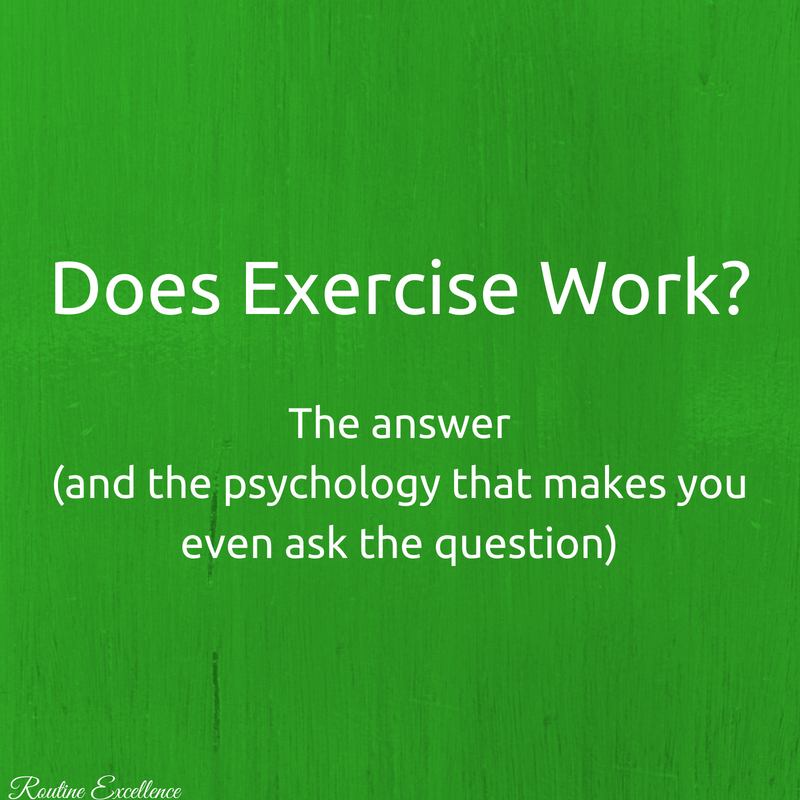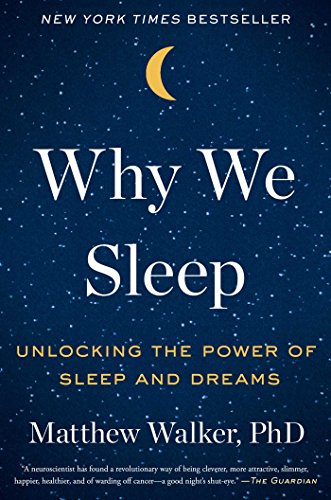
You know the meme “like dis if you cri evrytiem?”
It’s been a few years since you could find a “cri evrytiem” comment in literally every comment section, but for whatever reason I still laugh whenever I see it.
Still, there’s one video on the internet that actually does get me a little misty. No matter how many times I watch it.
Look, I don’t claim to be an especially tough guy. I didn’t cry at the end of Marley & Me, but that’s about where my badassery ends. You’re not gonna find me out rousin’ punks, or whatever it is they do in procedural cop shows starring insert-grizzled-veteran-here.
Whatever part of someone of me that should have cried during Marley & Me but didn’t—that’s where this video hits.
This is Arthur’s story.
I’ll let you watch before we keep going.
There are so many lessons to learn from this video. I think most of them are misrepresented by the title, which makes the story seem like your standard motivational pep talk (as you might know, I’m not the biggest fan of the concept of motivation).
But there are other things to take away. There are lessons about consistency. About discipline.
You don’t see much of them in the video, but you can infer that there are people behind the scenes that Arthur cares about. And even though it isn’t discussed, diet must have played a role in losing that much weight.
All of that is important, and I’ve written about all of it elsewhere. There are other ways to learn those lessons. What Arthur’s story proves better than anything else is this—it can be done.
Sound like your standard motivational speaker, life coach bullshit? It isn’t. Here’s the psychology of why (and why it’s vitally important).
What’s hiding behind lack of motivation
I’ve talked to a lot of people about getting fit, and one phrase pops up more than anything else: “I’m having trouble getting motivated.”
I find this fascinating.
As you already know, I’m not a big believer in motivation. Looking at people who have success, along with the research on motivation, doesn’t seem to show that motivation is all that useful compared to building good habits.
And yet…
“I’m having trouble getting motivated.”
This comment is everywhere. I get it in emails. I read it on forums. I hear it straight from people’s lips. It has to mean something.
The more I’ve read and watched and studied, the more I realize that it does mean something. It’s the default explanation for why things go wrong.
You know when you’ve got people coming over and you haven’t made your bed, so you spread a blanket on top of the mess to cover it up?
That one might just be me, so let’s try another—have you ever quickly shoved something into a closet, so that your living area looks clean?
Motivation is the blanket. Motivation is the door to the closet.

The thing is, it’s actually really hard to figure out what causes giving up on exercise. It takes a huge amount of self-awareness (and often the benefit of hindsight) to figure it out.
I have the benefit of looking at all of this from a distance—plus I’ve seen it hundreds of times, and can read the patterns.
Here’s what I’ve learned: when you say you don’t have motivation, there’s always a deeper problem.
What that problem is can vary. Sometimes the rest of your life is tumultuous (a recent move, a family member passed away, a high-stress job). Sometimes you feel self-conscious (it’s embarrassing to work out, because shouldn’t you already know how to do this?).
But far and away the biggest underlying problem I see is this: you’re not sure exercise is going to work for you.
Does exercise work?
When I talk to people about their fitness struggles, many start by saying they don’t have motivation. Then I dig a little deeper.
And that’s where it gets interesting.
- “I can’t find a routine that challenges me over time, and I’m never sure if what I’m doing is really the most effective”
- “It’s just so hard to keep starting from scratch. Exercise isn’t fun at the beginning.”
- “I’ve been doing the same few workouts, and I get bored of them and want to change it up”
It isn’t obvious at first, but the same belief is underlying all of these statements. “I don’t know what works and what doesn’t.”
It’s pretty clear in the first one, so let’s skip straight to the second.
“It’s just so hard to keep starting from scratch”
If the person who said that had stopped talking right there, I would never had one of my most important realizations (i.e. the key insight of this article).
Thankfully, they followed up with “I start believing it doesn’t matter.”
I perked up right away. This was new. It was interesting. It was the first time I had gone past “lack of motivation” as an explanation—and once I heard it for the first time, I started seeing it everywhere.
Let me use an unfair analogy to make this point.
Imagine that scientists at Stanford University have invented a magical pill. All you need to do is take it 3 times a week, and amazing things happen.
- You start to get more muscular. Not necessarily huge or bulky, but strong. Toned. Sexy.
- You feel better. You sleep better. You’re more alert during the day.
- Your mood improves and you smile more
- Insecurities that you’ve battled your whole life disappear
- Your health improves and you live for years longer
All of those results, with 100% effectiveness. Side effects include temporary mild sweating and heavy breathing. Would you take it?
I certainly would, and I think most people would at least be interested. Of course, I’m not really talking about a pill here, and people have known about it without the help of scientists from Stanford. I’m talking about exercise.
If you knew, 100%, that your exercise and diet would get you the results and the life that you want—wouldn’t you be able to push through the slow start?
If you were seeing results from the same few workouts, don’t you think you would be able to keep doing them, even though they were boring?
If it were just about knowing what exercises to do, you could find a workout routine with 5 minutes on Google.

But it’s not, is it? It’s about knowing which exercises are effective—and that’s something that’s harder to find in a Google search.
I said this was an unfair analogy, and it is—I know that there are other reasons that you have trouble working out consistently. Also, there are some legitimately miraculous medical treatments that only don’t work because of people who refuse (or forget) to take their pills.
Still…
Understanding what’s hiding behind motivation is incredibly important.
When the problem is “I’m so lazy” or “I have motivation,” there’s really not a whole lot you can do to solve it. Phrased like “I’m so lazy,” you are the problem. Making progress means changing who you are instead of changing what you do.
“Maybe someday I’ll find the motivation.”
I’ve heard this statement a lot, and it has the same problem. “Someday” always means “some other day.”
And motivation isn’t something you can find. As much as I wish there were a pirate chest overflowing with motivation, just waiting to be discovered—it doesn’t exist.
Motivation is something you create. When you dig past the surface level and discover why you’re struggling with motivation, you come up with an actionable problem that you can actually work to solve.
Let’s talk about the psychology behind motivation, and how you can build some for yourself.
Goals, motivation, self-efficacy—what makes exercise work
Psychologists have a lot of interest in understanding why people don’t follow through with things.
Exercise really is like that magic pill—and the more people do it, the healthier we can become as a society. A lot of psychologists also use undergraduates as participants in their experiments, and that’s definitely not a group of people that ever struggles with procrastination, right?
The point: there’s actually quite a bit of research on goal-setting and the relationship between motivation and behavior.

I have another article about how to set good fitness goals (which I’ll be updating with more research—stay tuned), but here are some of the most important highlights.
- Your commitment to a goal goes up when you have a role in shaping your goal [1]
- Your commitment to a goal goes up when that goal is important to you [2]
- Higher “self-efficacy” beliefs mean higher probability you achieve your goal [3]
Let’s start at the third one and work backwards.
If you have a high self-efficacy belief, that means you strongly believe in your ability to achieve something.
But what’s interesting about self-efficacy beliefs isn’t your actual ability to do something. It’s that beliefs about your ability to do something affect your ability to actually do it—regardless of how high your real ability is [3].
The picture starts to get a little clearer. Low self-efficacy is part of what causes low motivation. What happens from there?
“I start to believe it doesn’t matter.”
When you’re struggling to achieve a goal, your brain starts to throw up defense mechanisms [4].
This effect is strong. The preservation is so important that people sometimes self-handicap (non-psychologists usually call is self-sabotage) just so that they have an excuse for a failure that might happen [5].
When you can justify not working out, it doesn’t feel like as much of a failure. When people come to me for help, they often admit that they’re embarrassed or nervous to talk about their problems.
That’s uncomfortable, and your brain doesn’t like being uncomfortable. So you come up with justifications. Reasons—either huge, sweeping ones like “I’m so lazy” or external ones like “finding” motivation—that make you feel better.
One of those is “believing it doesn’t matter.”
If exercise doesn’t matter, why do it? Struggling to work out isn’t really problem if exercise isn’t important in the first place.
Do you see what’s happening here?
You struggled to work out because you weren’t sure it would get the results you’re looking for (low belief in self-efficacy). Then, to rationalize that, you start believing exercise doesn’t matter (low belief in importance).
Those are two huge predictors of goal success that are now working against you.
What’s the fix?
What makes Arthur’s story motivational
I haven’t talked about Arthur for a while. After a rewatch (and as Coldplay’s “Fix You” fades out), let’s return to his story.
What makes Arthur’s story so motivational is that it answers the question “does exercise work” in the worst possible circumstance. Arthur was injured in the military. He was hugely overweight. He literally couldn’t walk.
But by the end of the video, he looks great. He’s lost the weight, he can do a headstand, and (most importantly) he can run.
Does anyone doubt that Arthur’s life is better with exercise? Clearly, exercise is important.
Does anyone doubt that Arthur’s exercise and diet program was effective? Clearly, they can get results.
The underlying message is that if this broken, overweight man could succeed—so can you.
Arthur’s story hints at a crucial question about self-efficacy and importance: how can you increase your self-efficacy? How can you come to believe that exercise matters and can work for you?
Here’s what I recommend.
When you’re choosing an exercise program, look for the results. Look for people who have succeeded, even when circumstances were against them. Look for people like you—people who have similar challenges—who have gotten results despite them.
- Read online reviews of your program
- Look for success stories from people like you
- Read my article on what makes a workout routine effective
Exercise does work. The laws of physiology don’t change that much from person to person. But me saying that isn’t the same as you believing it—that will take looking at people like you.

When you’re choosing an exercise program, answer this question—how will exercise improve my life? Make sure you know and believe that exercise will make your life better. Read my goal-setting article for more details on this exercise.
- Think about what you’ll be able to do differently
- Think about how the people in your life will benefit
- Write down three ways your life will be better when you succeed
Don’t dwell on these reasons. Despite what self-help writers advise, the research on visualization shows that visualizing outcomes actually makes you less like to succeed [6, 7].
But appreciate them. Understand that exercise will affect you in a big way. Know and believe its importance.
Take an active role. Take control. (Sorry for rhyming)
If you’re paying close attention, you may have notice that I haven’t discussed one of the predictors of success. When you play an active role in creating your goals, you’re more likely to achieve them [1].
All of the steps above help you take control.
When you are the one who chooses your program, you become more committed to it. That’s why I’m happy to advise people on their programs, but rarely hand out exercises willy-nilly.
When you appreciate why exercise is important, you start to see its impact on your life. That’s why you can read a million articles about “benefits of exercise” and still not take action—it needs to apply to you.
When you do the research. Put in the work. See how exercise has been successful for other people. When you do those things, you go beyond “knowing” that exercise can work.
You start to deeply, deeply believe in the power of exercise.
You start to see how it really is like that 100% successful pill.
And you take it.
References
[1] Latham, G. P., Winters, D. C., & Locke, E. A. (1994). Cognitive and motivational effects of participation: A mediator study. Journal of Organizational Behavior, 15, 49-63.
[2] Locke, E. A. (1996). Motivation through conscious goal setting. Applied and Preventive Psychology, 5, 117-124.
[3] Zimmerman, B. J., Bandura, A., & Martinez-Pons, M. (1992). Self-motivation for academic attainment: The role of self-efficacy beliefs and personal goal setting. American Educational Research Journal, 29, 663-676.
[4] Sherman, D. K., & Cohen, G. L. (2006). The psychology of self‐defense: Self‐affirmation theory. Advances in experimental social psychology, 38, 183-242.
[5] Rhodewalt, F., Morf, C., Hazlett, S., & Fairfield, M. (1991). Self-handicapping: The role of discounting and augmentation in the preservation of self-esteem. Journal of Personality and Social Psychology, 61, 122.
[6] Oettingen, G., & Wadden, T. A. (1991). Expectation, fantasy, and weight loss: Is the impact of positive thinking always positive?. Cognitive Therapy and Research, 15, 167-175.
[7] Oettingen, G., & Mayer, D. (2002). The motivating function of thinking about the future: expectations versus fantasies. Journal of Personality and Social Psychology, 83, 1198.


